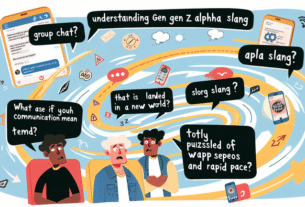Fashion often dazzles us with its dazzling runways and trendsetting designs, yet behind the glitz lies a labyrinth of hidden labor and environmental costs. One man determined to pull back the curtain is Dr. Hakan Karaosman, whose mission is to infuse transparency and responsibility into every stitch and seam of the garment industry.
Raised in a modest neighborhood where resources were scarce and community bonds ran deep, Karaosman learned early that prosperity cannot come at the expense of human dignity. His upbringing sparked a lifelong commitment to uplifting workers whose contributions are frequently overlooked in luxury boutiques and retail stores.
Pursuing academic excellence, Karaosman earned advanced degrees that meld economic theory with supply-chain ethics. His research laboratories became hubs for exploring how procurement decisions ripple outward—affecting everything from farmers’ livelihoods to factory employees’ wellbeing. By integrating data analytics with field interviews, he built a rigorous framework for measuring social impact.
Armed with scholarly insights, he forged partnerships with manufacturers, certification bodies, and non-governmental organizations. Together, they designed protocols ensuring that raw material sourcing and factory operations adhere to clear standards on wages, working conditions, and environmental stewardship. This network-based approach underscores his belief that no single actor can fix systemic flaws alone.
Yet Karaosman’s work is not confined to think tanks. He immerses himself in grassroots initiatives—hosting workshops for garment workers, training student ambassadors and local entrepreneurs, and advocating for policy reforms at city councils. These on-the-ground activities reinforce his conviction that sustainable change springs from both policy and people-powered movements.
In interviews, he often highlights the power of technology—blockchain tracing, open-source dashboards and real-time reporting—to hold brands accountable. My own observations suggest that by combining empirical research with digital tools, he is crafting a replicable blueprint that other industries could adopt to verify ethical practices in real time.
Dr. Karaosman’s journey from humble roots to global advocate offers more than an inspiring biography; it illuminates a path toward a fashion ecosystem where transparency is nonnegotiable. His work reminds us that every purchase is a vote for the supply-chain values we endorse, and that collective responsibility can transform an opaque industry into a beacon of accountability.




